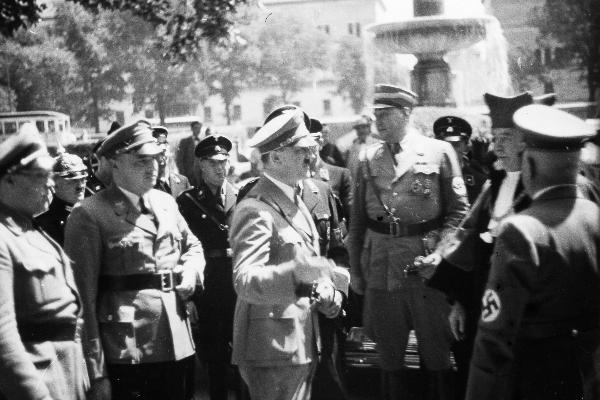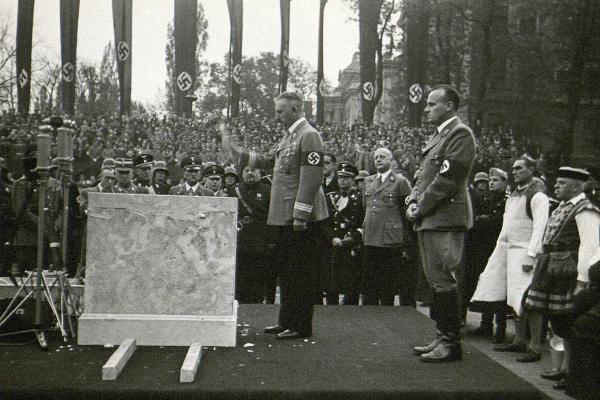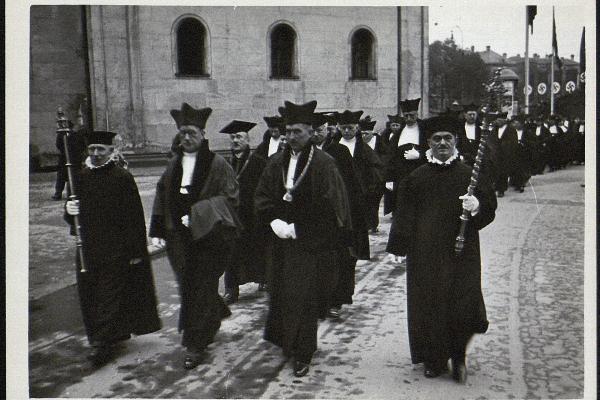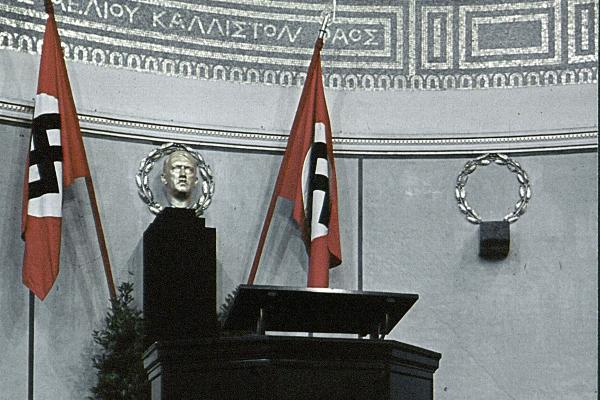The revolution of November 1918 and the proclamation of the Republic found few supporters among LMU students and faculty. This is underlined by the fact that the University Senate refused to hold a ceremony to mark the adoption of the new constitution (Reichsverfassung) in July 1919. One of the few professors willing to at least recognize the new State was Max Weber.Nevertheless, at the end of the First World War, LMU’s reputation remained unbroken, and even in the depths of the post-war depression the average number of students never fell below 7,000. This can be attributed to the fact that LMU still had many researchers and institutes of international stature. The continuing trend towards specialization in science and research also stimulated the foundation of new academic chairs and departments.In the 1920s Munich was a center for reactionary and extremist groups that counted many students among their members. Their degree of radicalization and their public impact increased as the decade advanced. In 1925 Richard Willstätter personally drew attention to the growing threat by resigning from his position as Professor of Chemistry at LMU. During these years there were frequent scuffles, demonstrations and riots on campus, and the University was repeatedly forced to close temporarily. However, while attacks perpetrated by left-wing students were severely punished, the Senate’s response to violence by right-wing elements of the student body was usually much less decisive.The seizure of power by the National Socialists in 1933 brought far-reaching changes to LMU. A new law redefined the entrance requirements for students. Jewish or politically suspect individuals on the faculty were dismissed from their posts. The numbers of Jews admitted to university were restricted and the curriculum was restructured in accordance with the new ruling ideology. With the appointment of Walther Wüst, Indologist and Aryan ideologist (President of the National Socialist Forschungsgemeinschaft Deutsches Ahnenerbe), as Führer-Rektor of the University in 1941, responsible research and soundly based tuition programs became more and more difficult, particularly in ideologically sensitive disciplines. These authoritarian measures led to a further fall in student enrolment.When the war began in 1939, LMU was one of the few universities in Germany able to remain in operation. But as the war progressed, the lack of qualified staff soon made itself felt. In the first year of the war, the number of registered students rose to 6,700, before falling back to between 3,000 and 4,000 in 1941-1944. After the Main Building was destroyed by Allied bombers in July 1944, only a rudimentary teaching program could be maintained, and the scheduled Summer Semester of 1945 was cancelled.




